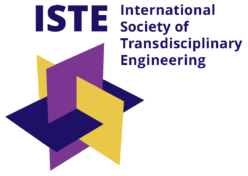In 2017, the former society ISPE, Inc. was renamed into ISTE – International Society of Transdisciplinary Engineering. ISTE was registered in the Netherlands in Delft. Its Chamber of Commerce number is 71835237. Its RSIN number is: 858868039.
ISTE continues the work performed in the former ISPE and ISPE, Inc. by means of stimulating the development and dissemination of research performed in the field of engineering across disciplines.
Brief history
ISPE Inc. was formerly registered as a non-profit organization in New York in 2004. It was officially called ISPE Inc. since then. The main objective of ISPE, Inc.was to transfer and integrate new knowledge with relevant existing or new technology and improve strategies and resources to enhance productivity and competitiveness of current product and service producers and thereby improve the quality of the life. ISPE Inc. has been promoting research, education, and application by organizing conferences and other professional activities.
The International Society for Productivity Enhancement (ISPE) was founded in 1984 in the USA with the goal to support and improve the international exchange of ideas and scientific knowledge in the field of technological development and application.
What is transdisciplinary engineering?
Transdisciplinary Engineering is an emerging field that extends and evolves the initial basic concepts known as Concurrent Engineering (CE). CE has matured and has become the foundations of many new ideas, methodologies, initiatives, approaches and tools. Generally, CE concentrates on enterprise collaboration and its many different elements; from integrating people and processes to very specific complete multi/inter/trans-disciplinary solutions, taking the user into account. Current research on CE is driven by many factors like increased customer demands, globalization, (international) collaboration and environmental strategies. The successful application of CE in the past opens also the perspective for future applications like overcoming natural catastrophes, sustainable mobility concepts with electrical vehicles, and intensive, integrated, data processing, with an increasing importance of Transdisciplinarity. User and application environments are more and more included into design and development to customize new products and implement solutions that are really needed and wanted. Research incorporates then also social science methodologies to acquire the necessary knowledge about users and context and to better implement solutions in their context. Engineering needs these approaches to be more successful with their innovation efforts. Most importantly, collaboration between different disciplines is needed to realise this approaches. Not one discipline can possess all knowledge necessary to solve the complex problem of our era.
Transdisciplinarity is characterising modern research areas, in which natural sciences are integrated with social sciences, requiring mixed methodologies for achieving the work. It is expected to be a significant basis for future evolution, especially in all Engineering areas.
The policy plan of ISTE can be found here.
The financial reports of ISTE can be found here.
The governance of ISTE can be found here.
The statutory rules of ISTE can be found here.
The bylaws of ISTE can be found here.
